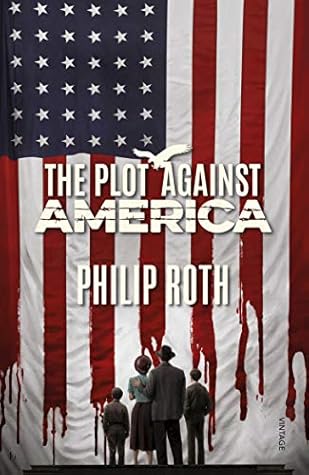More on this book
Community
Kindle Notes & Highlights
It turned out, the experts concluded, that twentieth-century Americans, weary of confronting a new crisis in every decade, were starving for normalcy, and what Charles A. Lindbergh represented was normalcy raised to heroic proportions, a decent man with an honest face and an undistinguished voice who had resoundingly demonstrated to the entire planet the courage to take charge and the fortitude to shape history and, of course, the power to transcend personal tragedy. If Lindbergh promised no war, then there would be no war—for the great majority it was as simple as that.
A new life began for me. I’d watched my father fall apart, and I would never return to the same childhood. The mother at home was now away all day working for Hahne’s, the brother on call was now off after school working for Lindbergh, and the father who’d defiantly serenaded all those callow cafeteria anti-Semites in Washington was crying aloud with his mouth wide open—crying like both a baby abandoned and a man being tortured—because he was powerless to stop the unforeseen. And as Lindbergh’s election couldn’t have made clearer to me, the unfolding of the unforeseen was everything. Turned
...more
I didn’t know. I didn’t know any longer what the law was and so I didn’t know what might or might not be against it. I didn’t seem to know whether my own father—who’d just headed downstairs with my mother—was really alive or pretending to be alive or being driven around dead in the back of that ambulance. I didn’t know anything. I didn’t know why Alvin was bad now instead of good. I didn’t know if I had dreamed that an FBI agent had questioned me on Chancellor Avenue. It had to be a dream and yet couldn’t be if everybody else said they’d been questioned too. Unless that was the dream. I felt
...more
“Because what’s history?” he asked rhetorically when he was in his expansive dinnertime instructional mode. “History is everything that happens everywhere. Even here in Newark. Even here on Summit Avenue. Even what happens in his house to an ordinary man—that’ll be history too someday.”
Never in my life had I so harshly judged any adult—not my parents, not even Alvin or Uncle Monty—nor had I understood till then how the shameless vanity of utter fools can so strongly determine the fate of others.
Their being Jews issued from their being themselves, as did their being American. It was as it was, in the nature of things, as fundamental as having arteries and veins, and they never manifested the slightest desire to change it or deny it, regardless of the consequences.
After nearly two years of never knowing whether to believe the worst, of trying to focus on the demands of their day-to-day lives and then helplessly absorbing every rumor about what the government had in store for them, of never being able to justify either their alarm or their composure with hard fact—after so much perplexity, they were so ripe for delusion that, when the parents gathered on their beach chairs to chat together in the alleyways at night, the guessing game that invariably started up could go on without letup for hours:
in an ordinary family living room—traditionally the staging area for the collective effort to hold the line against the intrusions of a hostile world—the anti-Semites were about to be abetted in their exhilarating solution to America’s worst problem by our taking up the cudgels and hysterically destroying ourselves.
If only he had been allowed to go along unrehabilitated, on his own stinking trajectory, but that hadn’t happened, and so this was how the great menace undid us and the abomination of violence entered our house, and I saw how bitterness blinds a man and the defilement it spawns.


